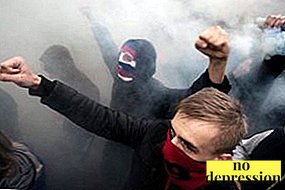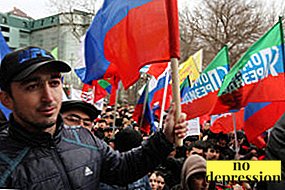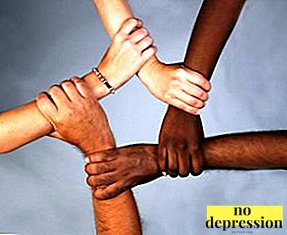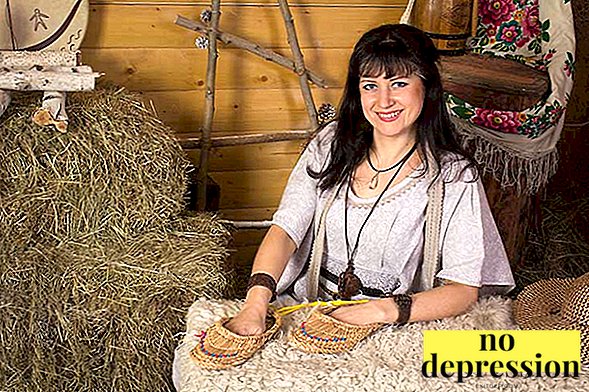Conflict situations happen not only between individuals.
Much more serious conflicts also arise when entire states, millions of people are involved in the incident.
Many people do not fully understand what danger of ethnic conflicthow important it is to solve a problem in a peaceful way, otherwise serious consequences are possible.
Concept

National conflict called the clash of interests, attitudes between national-ethnic communities, or their components.
In most cases, this is the result of nationalism.
Ethnic conflict - This is a broader concept. This is a kind of social conflict. It is based on many contradictions.
Usually they are of a state, political, ethno-social nature. Thousands and millions of people take part in such disputes. They are large-scale, can last for years, decades.
If the parties stop hearing each other, try to prove their case, the situation becomes much more complicated and may lead to military action.
That is why such situations are trying to solve in the early stages, preventing their development.
What are the causes of occurrence?
Why do they arise? The causes of national and ethnic conflicts are slightly different. The first group includes the following factors:
- Ethnopsychological. The destruction of the usual way of cultural life, the fear of losing established national values, the rejection of new norms.
- Political. Different political leaders can have a certain influence on national communities and this is not always a positive influence. Impact may be the most negative. There are cases in history when nations were persecuted and discriminated because of certain political actions.
- Socio-economic. If a certain ethnic society is criticized by society, its rights are infringed, it also affects the economic component of individuals. This infringement can lead to a conflict.
- Cultural. Conflicts occur due to cultural differences between certain ethnic groups that cannot accept the existence of these differences. Criticism, discrimination are an integral part of this situation. Peoples cease to understand, hear each other, try to prove that one ethnos is better than another.
Claims to cultural, traditional features are indicated, to which the opposition reacts especially emotionally.

Other causes of interethnic conflicts include:
- Geographical disagreement. Peoples are not satisfied with the establishment of territorial boundaries; the belonging of the territory to one or another ethnos can be challenged. The situation is especially complicated if one territory once belonged to the first side, and after a certain time the second.
 Then both people have the same rights and the fate of the territory becomes uncertain.
Then both people have the same rights and the fate of the territory becomes uncertain. - Social dissatisfaction. It can manifest itself both within one state and several at once.
- Story. In the past, there could be contradictions and misunderstandings between certain nations. Some moments may worry ethnic groups in the present, causing conflicts.
- Cultural and language claims. Most often occur due to the suppression of culture, the prohibition of a particular language.
- Natural resources. Different nations can fight for them, war.
- The difference of religions. Commitment to one faith or another may become a real cause for conflict. A people can stick to some kind of religion and criticize another, imposing their views on opponents.
Clash of views may occur for various reasons.
It can be both tangible, quite explainable contradictions, and non-material, relating to certain ideologies that make up a particular culture.
About interethnic relations and conflicts in this video:
Types and examples of modern conflicts
National conflicts are:
- Interethnic. This is a misunderstanding that occurs between representatives of ethnic communities. They live close to each other, in one state.
- Ethno-confessional. Confessional difference aggravates the ethnic, complicating the situation. Vividly manifested in the regions where several peoples live, each of which has developed in a particular civilization.
- Ethnopolitical. Misunderstanding and collision of views associated with the politicization of ethnic community.
- Ethnic conflict. This is a clash of views of representatives of different ethnic groups. Usually contradictions are connected with cultural peculiarities of peoples, traditions.

A vivid example is the dispute between Armenia and Azerbaijan over who owns Nagorno-Karabakh.
The territory has a rather interesting history, is of great importance for both states, therefore to settle the dispute fails over the years.
The types of ethnic conflicts include:
- Stereotype conflicts. Ethnic groups do not realize the causes of contradictions, do not remember the true sources of disagreements, but people still have a negative image about this or that people.
 Clash of ideas. Ethnicity makes a certain proposal, which is not supported by other ethnic groups and is even condemned.
Clash of ideas. Ethnicity makes a certain proposal, which is not supported by other ethnic groups and is even condemned.- Misunderstandings based on certain actions. They are meetings, demonstrations, open expression of certain claims. Such measures can cause negative attitudes, criticism, misunderstanding.
Inter-ethnic conflicts in history are very common.
This and struggle for resources, for territory.
An example is the Chechen conflict, when raised question of independence of Chechnya.
There were supporters of Chechnya’s withdrawal from Russia and supporters of its preservation within the country. Then different ethnic groups tried to prove their innocence, the need for independence, which is why the conflict happened.
Local national and religious conflicts in the space of the former USSR in the 1990s:
What is the danger: the consequences
These situations are very dangerous. They violate the rights of citizens, the principles of universal freedom, threaten peace, democracy.
The main danger lies in the fact that conflict can escalate into war, when weapons are used, many people will suffer.
Houses, cities, villages will be destroyed.
The consequences are:
- thousands and sometimes millions of deaths;
- the imprint of the conflict on the physical and psychological level;
- destruction of buildings, houses, material damage. A lot of time can be spent on restoring cities;
- expression of negativity in relation to one or another ethnos.

Ways to overcome and solutions
What is a conflict resolution plan? To overcome conflicts, to solve such situations, it is necessary to hear each other. Negotiations apply, the conclusion of peace treaties.
The negotiations involved diplomats who offer compromise solutions.
If the parties hear each other, will respect the opposition views, such situations will manage to settle.
Experts believe that such situations are necessary stop at the initial stagein order to prevent war, loss of life.

Need to prevent discrimination against the public, the infringement of this or that people, should be brought up in the citizens respect and love for other cultures, the desire to know each other, and not to show hatred.
Unity, the desire to understand each other - these are the components that help effectively prevent conflicts. Respecting each other’s interests will help keep the peace.
Interethnic conflicts and ways to overcome:
Is it possible to prevent: prevention
To prevent such situations is really possible. For this in people since childhood raise respect for each other regardless of ethnicity.
The schools conduct relevant lessons, tell about different cultures, about the uniqueness of each of them. Children are taught to interact, despite ethnic differences.
Teachers should talk about what all nations are equal, none of them should put themselves above the other. One ethnos can not be better than the other. It should be understood that every nation is unique and inimitable, and this should be proud of, and not strive to prove its superiority.
Help prevent these conflicts special films, TV shows and books. They cultivate in the representatives of different cultures tolerance, tolerance towards each other.

The most effective ways to prevent ethnic conflicts include official negotiations between different states, where each side expresses certain views, receives certain advice and assistance.
Negotiations help resolve some issues, they prevent any misunderstandings.
Conflicts can happen for different reasons. Transnational are one of the most common.
They existed both in the distant past and exist in the twenty-first century, although in most cases they succeed prevent early on. The ability to negotiate, find a compromise can help in maintaining peace.
Prevention of ethnic conflicts - expert opinion:

 Then both people have the same rights and the fate of the territory becomes uncertain.
Then both people have the same rights and the fate of the territory becomes uncertain. Clash of ideas. Ethnicity makes a certain proposal, which is not supported by other ethnic groups and is even condemned.
Clash of ideas. Ethnicity makes a certain proposal, which is not supported by other ethnic groups and is even condemned.

